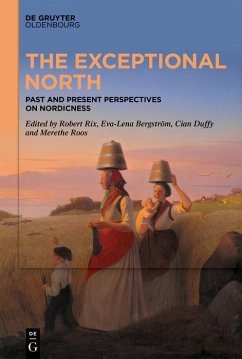
The History of Lapland (eBook, ePUB)
The Origin, Manners, Habits, Marriages, Conjurations of the People of the Region
Versandkostenfrei!
Sofort per Download lieferbar
2,13 €
inkl. MwSt.
Weitere Ausgaben:

PAYBACK Punkte
0 °P sammeln!
In his seminal work, "The History of Lapland," Johannes Scheffer offers a meticulous exploration of the geography, culture, and customs of the Sámi people, the indigenous inhabitants of northern Scandinavia. Written in an engaging narrative style that marries scholarly rigor with vivid descriptions, Scheffer's text serves as both an ethnographic account and a natural history. The book is not only a detailed chronicle of Lapland's unique landscapes and climate but also delves into the traditional practices, spirituality, and social structures of its people, reflecting the zeitgeist of the 17th...
In his seminal work, "The History of Lapland," Johannes Scheffer offers a meticulous exploration of the geography, culture, and customs of the Sámi people, the indigenous inhabitants of northern Scandinavia. Written in an engaging narrative style that marries scholarly rigor with vivid descriptions, Scheffer's text serves as both an ethnographic account and a natural history. The book is not only a detailed chronicle of Lapland's unique landscapes and climate but also delves into the traditional practices, spirituality, and social structures of its people, reflecting the zeitgeist of the 17th-century Enlightenment, which favored empirical observation and cultural documentation. Johannes Scheffer, a noted scholar and professor at the University of Upsala, was profoundly influenced by the intellectual currents of his time, particularly the intersection of science and the humanities. His interest in Lapland was piqued by its rich tapestry of culture and the challenges posed by its extreme geography. Scheffer's firsthand experiences during his travels to Lapland provided him with unique insights, enabling him to craft a narrative that balances academic inquiry with a personal touch. "The History of Lapland" is essential reading for enthusiasts of anthropology, history, and literature alike. It not only enriches our understanding of the Sámi culture but also resonates with contemporary discussions about indigenous rights and environmental sustainability. This work stands as a testament to the beauty and complexity of human life in one of Europe's most remote corners, inviting readers to reflect on the enduring bond between culture and landscape.
Dieser Download kann aus rechtlichen Gründen nur mit Rechnungsadresse in A, B, BG, CY, CZ, D, DK, EW, E, FIN, F, GR, HR, H, IRL, I, LT, L, LR, M, NL, PL, P, R, S, SLO, SK ausgeliefert werden.













